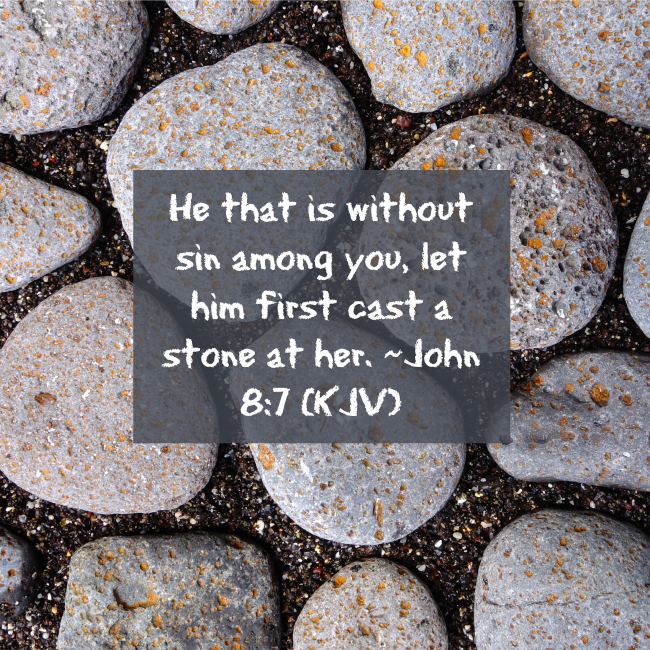John 8:1-11
1 but Jesus went to the Mount of Olives. 2 Early in the morning he came again to the temple. All the people came to him, and he sat down and taught them. 3 The scribes and the Pharisees brought a woman who had been caught in adultery, and placing her in the midst 4 they said to him, “Teacher, this woman has been caught in the act of adultery. 5 Now in the Law, Moses commanded us to stone such women. So what do you say?” 6 This they said to test him, that they might have some charge to bring against him. Jesus bent down and wrote with his finger on the ground. 7 And as they continued to ask him, he stood up and said to them, “Let him who is without sin among you be the first to throw a stone at her.” 8 And once more he bent down and wrote on the ground. 9 But when they heard it, they went away one by one, beginning with the older ones, and Jesus was left alone with the woman standing before him. 10 Jesus stood up and said to her, “Woman, where are they? Has no one condemned you?” 11 She said, “No one, Lord.” And Jesus said, “Neither do I condemn you; go, and from now on sin no more.”
The scribes and the Pharisees should know the Jewish law and the Roman law very well :
- There should be at least 2 witnesses to bring a charge.
- The adulterous man should be tried as well.
- The witnesses should not bear false witness or they would face the same punishment.
- The capital offense could only be enforced by the Roman authorities.
So they were not really seeking the execution of the adulterous woman but was doing so to trap Jesus. When the Lord Jesus said the one without sin could cast the first stone, He was reminding these law experts, especially the witnesses, that they could do so if they had not sinned or flouted the Jewish Law. Deut 17:7. Judaism regards the violation of the 613 prohibitions in the Jewish Law based on the Torah as a sin.
They were already bent on trapping and killing Jesus. So when they went away, they were not feeling remorse because they realized they were sinners too, but because they knew they had flouted the Jewish law and sinned. A trap had turned into an embarrassing expose for them who were supposed to be experts of the law.
Jesus would not condemn the woman as He was not a witness either. But He reminded her not to sin the same anymore.
The misuse of this passage to deride judgment of sin will contradict the direct command of judging serious sins in 1 Cor 5:9-13. Most of the times, it is used to justify unrestrained sin and it is a terrible wrong in itself.
